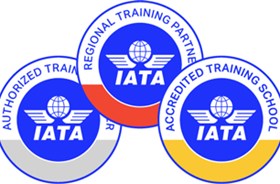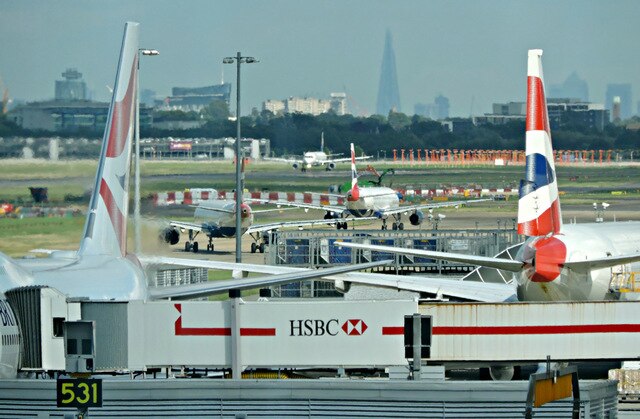IATA Courses are the Best Route to Competency
Who is IATA? and why you should do only the Best IATA courses.
A lot of people are not aware of IATA. Or not aware as they should be. They are important to the airline industry, and they have lots of things to offer you professionally.

IATA provides an enormous catalog of resources and a Travel Center that you can use in your daily work life. There are some really cool tools, documents, and reports that you can find if you just know where to look.
In this article, we will highlight some of the qualifications we like but we will also show you where best to go to start your development journey.
IATA Courses & Training
IATA is well known for its courses and Diplomas. Their courses are the gold standard. If you have that stamp on the certificate, it will be recognized anywhere in the world.
But they can be expensive and could involve you flying to foreign countries for their classroom courses. So, the question is, are they worth it? We believe so.
Welcome to the world of the International Air Transport Association Training (not to be confused with ICAO – who also provide training)
What is IATA?
They are an airline trade association. Like a union. IATA is made up of the world’s leading Airlines that was founded all the way back in 1945. In Havana, Cuba.
How things change… and like any trade organization or Union, they came together as a group to exchange common information and experiences, collate data for research and policy goals, and develop standards, training, and good practices (OECD, 2022).
But for you and me this means that IATA keeps all the Airlines’ goals together, so they are stronger. And it is the practices and training that we are most interested in. IATA is great in areas such as safety, the environment (ESG), and providing passenger services.
They also have the IATA Travel Center. Great for frequent travelers who want to know all of the travel rules for going to any country in the world.

IATA Training
In the past, IATA was mostly known for Dangerous Goods Training. It was their thing. ICAO now drives the majority of training syllabus, which then feeds into the FAA and EASA, and down to Individual countries for specific variations.
But DGR was IATA’s responsibility because dangerous goods are dangerous, and people would try to send all kinds of stuff around the world in thin cardboard boxes if we let them. So, the Airlines don’t let them.
In their defense, they are an exceptionally large organization where an entrepreneur’s style of working struggles to work within strict aviation regulations. A lot of their manuals and training courses were delivered at approved centers worldwide or would pop up in major airport hubs four times a year to cater to the Airline community.
But the COVID-19 pandemic changed all that. IATA has now moved a lot of its training courses and resources into Virtual classrooms or E-learning on their LMS (learning management system). Finally, they are moving into the 21st century.

pilotinstitute
Are You Ready To Take Off?
Pass the FAA Private Pilot test with flying colors. Achieve your dreams of flying an airplane.
IATA Courses
500+ courses are available (like ticketing and de-icing). The delivery method varies, and you need to check to see what ones are available depending on your needs.
We won’t get into a method debate here either, except to say that IATA knows both the pros and cons of distance learning and has assumed that in the building of the modules. And don’t forget, 90% of the pilots flying today did their theoretical learning at a distance and they are doing ok. Most of them.

The Main Categories are.
- Airline Operations
- Airport Operations
- Ground Operations
- Travel Agency
There are others but these are the big ones where most roles would be concentrated. And we want to highlight a couple of courses within each, which we feel you should investigate.
Why? Here are our key criteria – a) IATA Courses help you personally in your career growth b) Skills are transferable to other roles and c) they are part of a career or learning pathway
IATA - Operations Courses
How Airlines work. And succeed. How to create business and operational plans to start an airline. If IATA doesn’t know how to run an airline, we don’t know who does.
Ok, Soapbox time, we are HUUGE proponents of QMS, SMS, and SEMS here at WT Towers. Risk analysis, Key performance indicators, audits, and corrective actions. Here’s our argument – The person who designs and controls an airline QMS or SMS knows the most about how it operates well, or poorly. Full stop. The end. #nerdnomore
Airport Operations Courses
Airside and Landside ops, Airport procedures, safety regulations, and most importantly – Management skills for ops managers. A lot of you are seeking Management roles and their related training – courses. You should investigate this diploma, which will catch the eye in any aviation sector hiring managers.

TRAKRACER
Hone your aviation skills with these great flight simulator products from TrakRacer.
Get yourself in the sky today and feel what it’s like to be a pilot!
5 years ago, I wouldn’t have said this. But the pandemic has changed the cargo business and the secure supply chain entirely. Cargo is no longer the poor cousin of passenger revenue. Amazon, Alibaba, and (someday) drone delivery is going to put paid to that. Also, business development is what we all do, regardless of our title.
Ground Operations Couses
Learn the Ground handling manual and Ground Ops manual. Be an under-the-wing superstar. A Safety and Security Wizz. Master all the vehicles and equipment that descend upon unsuspecting B777s.
For now, this is classroom-based. But we don’t care. Why? Because it will move online lickety-split. The world wants it and needs it, and every company is scrambling for people who can help them develop a strategy.
Travel Agency Courses
Learn how to start travel and tour production. How to manage others in the travel business. Negotiation skills. Management skills. The travel business from the travel industry since 1945? Put me in coach.
You had me as a consultant. But this course is more than just airline-related opportunities. It also does ground travel and hotel; it teaches you the travel rules. And it gives you access to the gilded trophy room and opens the biggest box of all. The Fares and ticketing skills.

There is a whole lot more. Too much to cover here. Courses for for Lawyers, accountants, policymakers, data, and cyber professionals. There is even Wildlife protection.
There is also a General Aviation Management Diploma that we like. You can find it here. It’s very much a personal development course that we think you might find interesting regardless of where you are in terms of role, but if you want to move up a level and would like to show your employers you are serious. This could be worth looking at.
And good luck out there.



